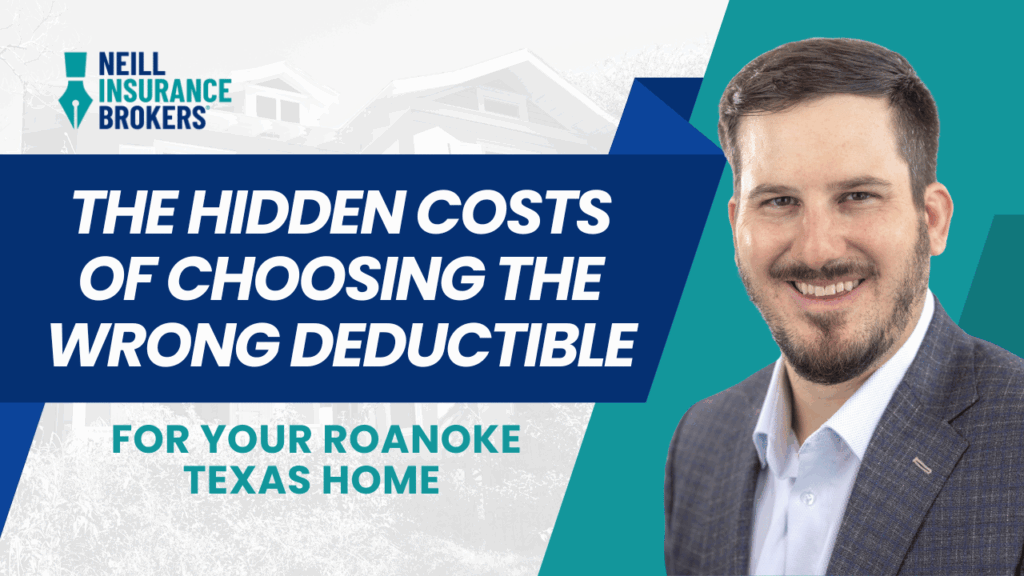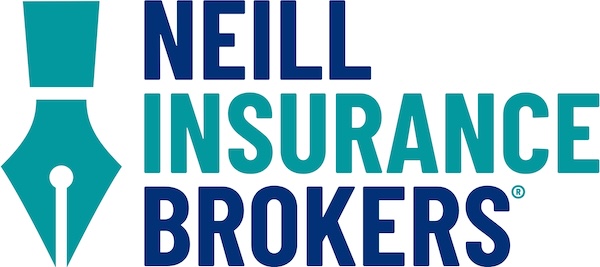
The decision to choose a high deductible to save on premiums could cost you far more than you’ll ever save if you can’t afford to pay it when disaster strikes. In Roanoke, Texas, where severe weather events are not just possible but probable, selecting the wrong deductible can transform your insurance from a financial safety net into a financial trap.
Understanding Roanoke’s Unique Risk Profile
Roanoke sits in one of Texas’s most hazardous weather zones. The area has experienced 32 reports of ground-level hail by trained weather spotters and been under 35 severe weather warnings in just the past 12 months. With 87 occasions of radar-detected hail near Roanoke, including recent storms producing quarter-sized hail, the question isn’t if you’ll face a weather-related claim, but when.
Texas leads the nation with 1,123 hail events in 2023 alone, with hail of at least one inch in diameter battering two million homes. The Dallas-Fort Worth area, which includes Roanoke, experienced storms in June 2023 that caused an estimated $7-10 billion in insured losses, with 95% caused by hail damage.
The Deductible Landscape in Texas
Percentage vs. Flat Deductibles
Most Texas homeowners face two types of deductibles on their policies:
Wind and Hail Deductibles: Nearly always percentage-based, ranging from 1% to 5% of your home’s insured value. For a home insured at $300,000, a 2% deductible equals $6,000 per claim.
All Other Perils: Often a flat amount like $1,000-$2,500, covering non-weather events like fire, theft, or water damage.
This dual structure means Roanoke homeowners face dramatically different out-of-pocket costs depending on the cause of damage. A burst pipe might cost you $1,000, but hail damage from the same storm could require $6,000 or more before insurance coverage begins.
The Hidden Financial Traps
The Growing Deductible Problem
Percentage deductibles create a moving target that grows with your home’s value. As construction costs and home values have soared—with Texas housing prices outpacing the nation since 2011—your deductible automatically increases. A 2% deductible that was $4,000 three years ago might be $6,500 today on the same home.
Real Example: A homeowner with a $250,000 home and 1% deductible pays $2,500 per claim. If home values increase 20% over three years, that same 1% deductible becomes $3,000—a $500 increase they never agreed to but must pay.
Multiple Claims, Multiple Deductibles
Each separate weather event triggers a new deductible payment. In Texas’s volatile climate, homeowners frequently face multiple claims in a single year. In 2013, Texas had 6.9 paid claims per 100 insured homes—38% higher than the national average. During severe weather years like 2008, Texas saw 17 paid claims per 100 homes, more than double the national rate.
For a Roanoke homeowner with a 2% deductible on a $350,000 home, each claim costs $7,000 out-of-pocket. Two separate hail events in one year could require $14,000 in deductibles alone.
The Mortgage Company Bottleneck
When major claims occur, mortgage companies often hold insurance proceeds until repairs are completed, creating additional hidden costs:
Delayed Access: Texas law requires mortgage companies to notify homeowners of fund release requirements within 10 days, but the actual release process can take weeks or months.
Contractor Payment Delays: Most contractors require deposits to begin work, but if your mortgage company holds the insurance check, you may need to finance repairs upfront while waiting for fund releases.
Interest Penalties: If mortgage companies improperly delay payments, Texas law allows homeowners to collect 10% annual interest on improperly held funds. However, proving “improper” delay often requires legal action.
The True Cost of High Deductibles
When Savings Turn Into Losses
Consider a typical Roanoke scenario: choosing between a 1% and 3% hail deductible on a $400,000 home might save $200-400 annually in premiums. However, the financial exposure differs dramatically:
- 1% Deductible: $4,000 per claim
- 3% Deductible: $12,000 per claim
During a single hail event, the “savings” from the higher deductible are wiped out, plus an additional $7,600 in out-of-pocket costs. Given Roanoke’s weather history, this isn’t a remote possibility—it’s a likely scenario.
The Inflation Multiplier Effect
Rising construction costs compound deductible pain. Texas construction wages rose significantly following the Great Recession due to skilled worker shortages. Recent inflation has pushed material costs even higher, with lumber and roofing materials seeing substantial price increases.
Current Impact: Home insurance rates in Texas increased 21% in 2023 and another 19% in 2024, with the average annual premium now around $3,851. As replacement costs increase, percentage deductibles automatically increase, creating a double financial burden.
Labor Shortage Costs
The construction industry faces critical shortages, with Texas experiencing at least a 30% labor shortage in key trades. This shortage drives up repair costs and extends project timelines, creating additional hidden expenses:
Premium Labor Rates: Skilled tradesmen command premium wages due to scarcity
Extended Hotel/Living Expenses: Longer repair timelines mean extended displacement costs
Quality Concerns: Rushed repairs due to contractor shortages may require future corrections
The Psychology of Poor Deductible Choices
Research reveals that over half of employees make poor deductible decisions when given choices, even when lower deductibles are mathematically inferior. Common psychological traps include:
Loss Aversion and Short-Term Thinking
Optimism Bias: People believe they’re less likely to experience claims than others, leading to higher deductible choices.
Premium Focus: Monthly premium amounts are psychologically more salient than potential claim costs, causing people to prioritize immediate savings over future protection.
Cash Flow Bias: Families operating on tight monthly budgets choose higher deductibles to lower premiums, not realizing they’re creating potential cash flow crises.
Legal and Regulatory Consequences
Bad Faith Implications
Choosing unaffordable deductibles can create situations where homeowners delay or avoid filing legitimate claims. This can trigger insurance company bad faith issues if insurers later claim delays show the damage wasn’t severe enough to warrant coverage.
Texas Penalties: Insurance companies acting in bad faith face significant penalties, including 18% annual interest on delayed payments and potential punitive damages.
Contractor Fraud Risks
High deductibles create temptation for illegal “deductible eating” schemes. Texas HB 2102 makes it illegal for contractors to waive deductibles, with penalties including fines and imprisonment for both contractors and homeowners.
Industry-Specific Roanoke Considerations
Climate Change Impacts
Severe weather intensity is increasing: The average fire size has tripled in the past 30 years nationally, while hailstorms are producing larger stones more frequently.
Claim Frequency Trends: Texas insurers paid out $1.02 for every $1 collected in premiums from 2018-2022, reaching $1.41 per dollar during Winter Storm Uri in 2021.
Market Availability Issues
9.5% of Texas homeowners—more than 1.1 million people—lack active homeowners insurance policies, often due to affordability concerns. High deductibles contribute to this problem by making policies effectively unusable for many families.
Strategic Deductible Selection Framework
Financial Capacity Assessment
Before selecting deductibles, Roanoke homeowners should evaluate:
Liquid Savings: Can you immediately access 2-3 times your highest deductible without borrowing?
Income Stability: Will deductible payments create financial hardship during already stressful claim periods?
Multiple Claim Tolerance: Can you afford to pay deductibles on multiple claims in a single year?
Risk-Adjusted Decision Making
High-Risk Scenarios (Choose Lower Deductibles):
- Older roofs (15+ years)
- Previous hail damage history
- Limited emergency savings
- Fixed or limited income
- Critical need for immediate repairs (elderly, disabled occupants)
Lower-Risk Scenarios (Consider Higher Deductibles):
- New construction or recent roof replacement
- Substantial emergency fund (6+ months expenses)
- Flexible income sources
- Ability to manage repair delays
Long-Term Cost Analysis
Rather than focusing solely on annual premium differences, evaluate deductibles based on 10-year total cost scenarios:
Conservative Approach: Assume 2-3 weather claims per decade
Moderate Approach: Assume 1-2 weather claims per decade
Optimistic Approach: Assume 1 weather claim per decade
Factor in inflation, home value appreciation, and potential changes in personal financial circumstances.
Professional Guidance Recommendations
Independent Agent Value
Work with independent agents familiar with Roanoke’s specific risk profile. They can explain how different carriers handle percentage deductibles and provide local claim history context.
Annual Reviews
Trigger Events for Deductible Review:
- Significant changes in home value
- Major life changes (retirement, job loss, inheritance)
- Multiple claim years
- Policy renewal with substantial rate changes
- Completion of major home improvements
Documentation and Planning
Maintain detailed records of:
- Home improvement investments that might affect replacement costs
- Annual home value assessments
- Emergency fund balances
- Previous claim experiences and out-of-pocket costs
The Bottom Line
For most Roanoke homeowners, the “hidden costs” of choosing the wrong deductible far exceed any premium savings. Given the area’s weather patterns, the question isn’t whether you’ll face a claim, but whether you can afford to use your insurance when you need it most.
The optimal deductible balances premium affordability with claim affordability, considering both your current financial situation and realistic expectations about Texas weather. In a state where catastrophe-related claims account for 53% of all homeowners payments, the stakes are too high to base deductible decisions solely on premium savings.
Remember: Insurance you can’t afford to use isn’t insurance—it’s expensive peace of mind that offers no actual protection. Choose deductibles you can comfortably pay multiple times per year, because in Roanoke, Texas, severe weather doesn’t follow a predictable schedule.

